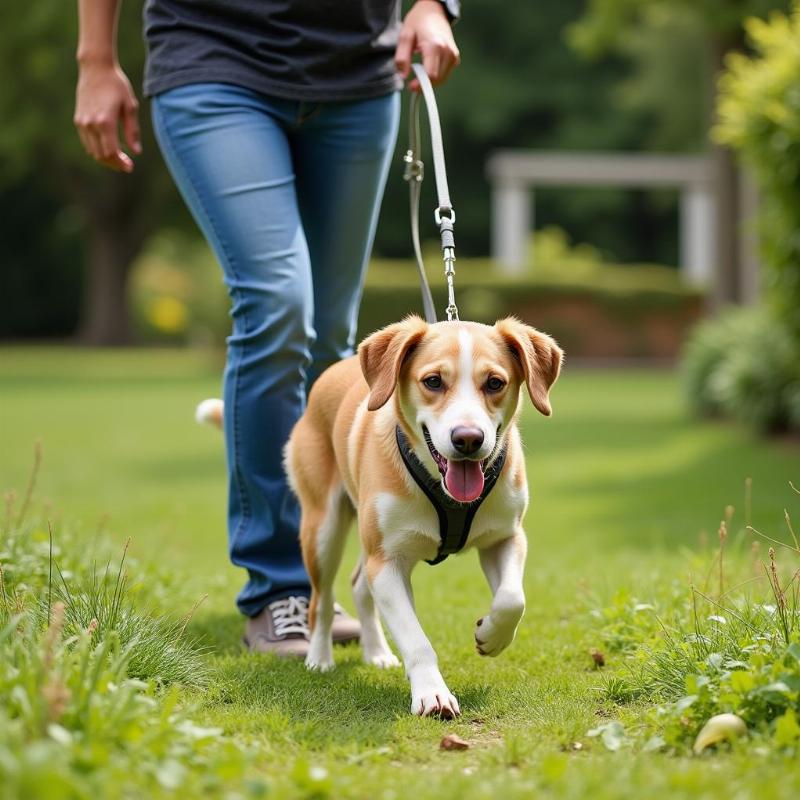Rabies is a deadly viral disease that affects the central nervous system of mammals, including dogs. While the rabies vaccine is highly effective, many pet owners still wonder, can a dog get rabies if it’s vaccinated? The short answer is yes, but it’s extremely rare. Understanding how the vaccine works, why breakthroughs can happen, and what steps to take can help alleviate concerns and keep your furry friend safe.
Vaccination is the cornerstone of rabies prevention. In the United States, rabies vaccines for dogs are typically administered as a series of injections, starting at around 12 weeks of age, followed by boosters. These vaccines stimulate the dog’s immune system to produce antibodies against the rabies virus, providing protection against future exposure. However, no vaccine is 100% effective.
Why Might a Vaccinated Dog Still Get Rabies?
Although incredibly rare, there are a few reasons why a vaccinated dog could potentially contract rabies. These include:
- Vaccine Failure: In rare cases, a vaccine might not stimulate a sufficient immune response. This can be due to factors like improper storage or administration of the vaccine, or individual variations in the dog’s immune system.
- Exposure Before Immunity: If a puppy is exposed to rabies before completing the initial vaccination series and developing full immunity, it can still contract the disease.
- Waning Immunity: While rabies vaccines provide long-lasting protection, immunity can wane over time. Regular booster shots, as recommended by your veterinarian, are crucial to maintain adequate antibody levels.
What to Do If Your Vaccinated Dog is Bitten by a Wild Animal
Even if your dog is vaccinated, any bite from a wild animal, especially known rabies carriers like raccoons, skunks, bats, and foxes, should be taken seriously. Immediately follow these steps:
- Confine your dog: Secure your dog to prevent further contact with the wild animal or other pets.
- Wash the wound: Thoroughly wash the bite wound with soap and water for at least 15 minutes. This can help remove some of the virus.
- Contact your veterinarian immediately: Your veterinarian will assess the situation and determine the appropriate course of action, which may include a booster vaccination and observation.
- Contact animal control: Report the incident to your local animal control authorities. They can attempt to capture the wild animal for testing, which is essential for confirming a rabies diagnosis.
Rabies Prevention: Beyond Vaccination
While vaccination is the most important step, other preventative measures can further minimize the risk of rabies:
- Avoid contact with wildlife: Discourage your dog from interacting with wild animals. Do not allow them to roam freely, especially in areas where rabies is prevalent.
- Supervise your dog outdoors: Keep your dog on a leash when outside, especially in unfamiliar areas.
- Secure your property: Prevent wild animals from accessing your property by securing garbage cans, sealing any openings in fences or buildings, and removing potential food sources.
Expert Insight
Dr. Emily Carter, DVM, a leading veterinary specialist in infectious diseases, emphasizes the importance of regular booster shots: “Even though rabies breakthroughs are rare, maintaining your dog’s immunity through regular boosters, as recommended by your veterinarian, is crucial for long-term protection. Don’t skip these vital appointments.”
 Dog on Leash in Park
Dog on Leash in Park
Conclusion
Can a dog get rabies if it’s vaccinated? Yes, but it’s extremely uncommon. By vaccinating your dog, following preventative measures, and acting swiftly if your dog is bitten by a wild animal, you can significantly reduce the risk and protect your beloved companion from this deadly disease. Remember, vigilance and regular veterinary care are key to keeping your furry friend happy and healthy.
FAQ
- How often does a dog need a rabies booster? This depends on local regulations and your veterinarian’s recommendation. Typically, boosters are given every one to three years.
- What are the symptoms of rabies in dogs? Symptoms can vary, but common signs include behavioral changes (aggression, restlessness), difficulty swallowing, excessive drooling, paralysis, and seizures.
- Is rabies treatable in dogs? Unfortunately, there is no effective treatment for rabies once clinical signs appear.
- Can humans get rabies from a vaccinated dog? It’s extremely unlikely for a vaccinated dog to transmit rabies to a human.
- What should I do if I find a bat in my house? Contact animal control immediately. Bats are a common carrier of rabies.
- Are there any side effects to the rabies vaccine? Mild side effects, such as soreness at the injection site or lethargy, are possible but usually resolve quickly.
- Do indoor dogs need rabies vaccines? Yes, even indoor dogs can be exposed to rabies, for example, if a bat enters the house.
Beautdogs.us is your premier source for all things dog-related in the United States. We provide expert advice on dog breeds, care, and products, empowering both new and experienced dog owners. From breed-specific guides to health tips and product reviews, we’re dedicated to helping you provide the best possible care for your canine companion. Contact us today for all your dog-related needs! Email: [email protected], Phone: +1 501-555-7529. Visit Beautdogs.us for more information!